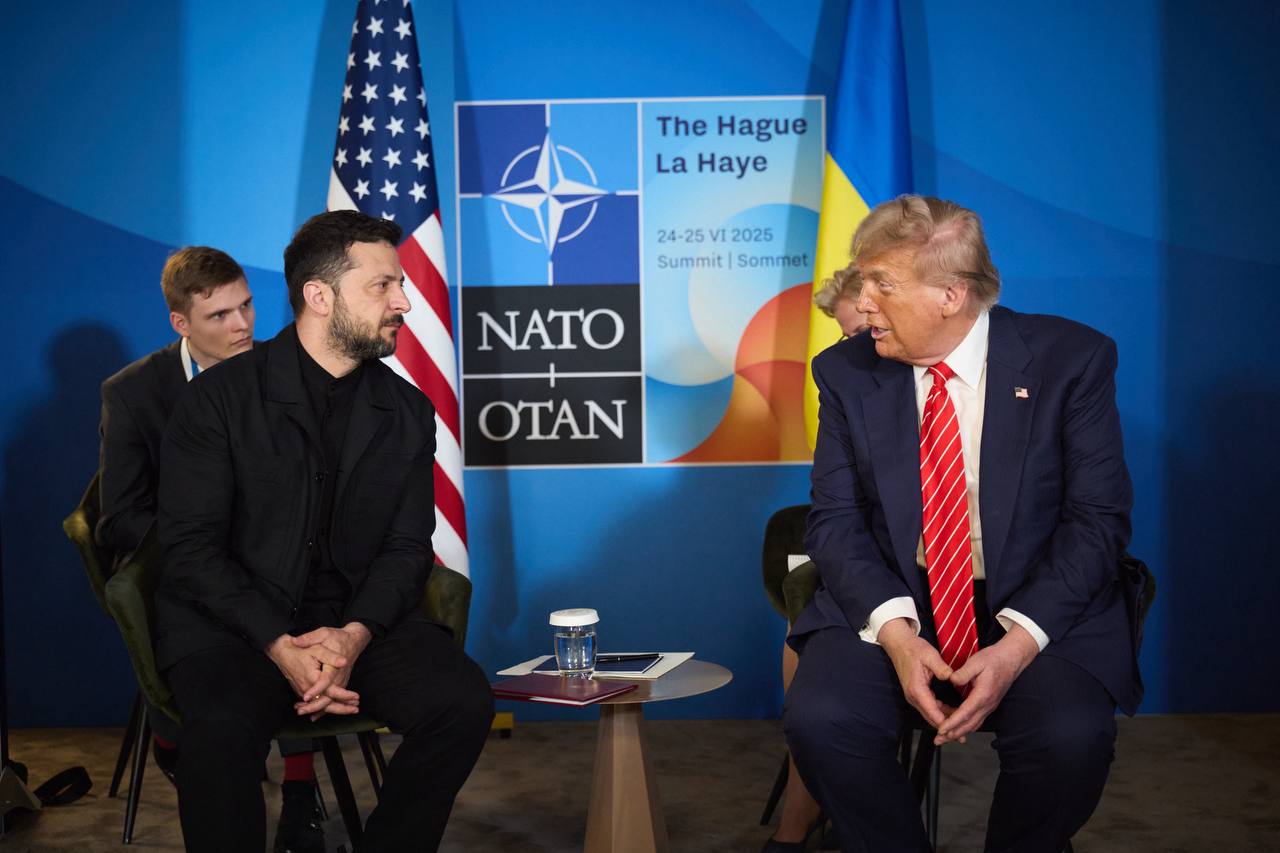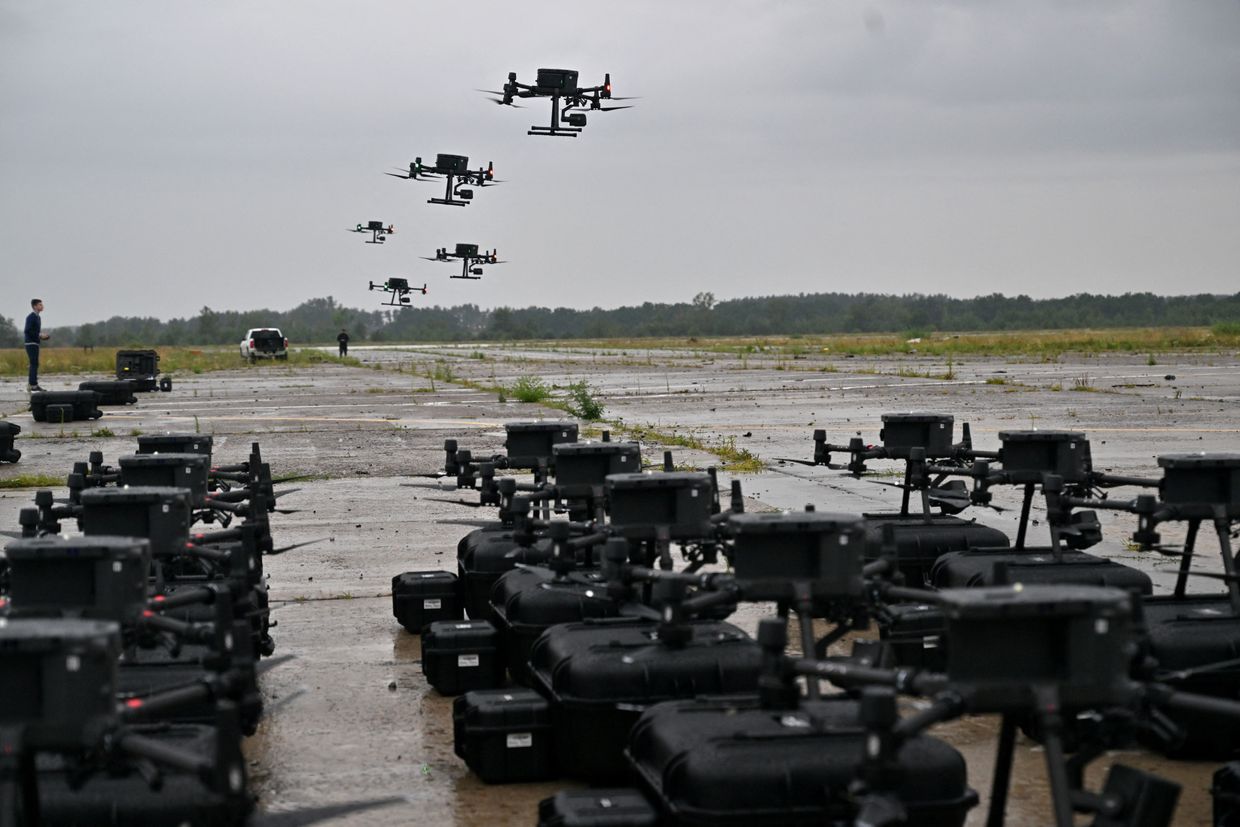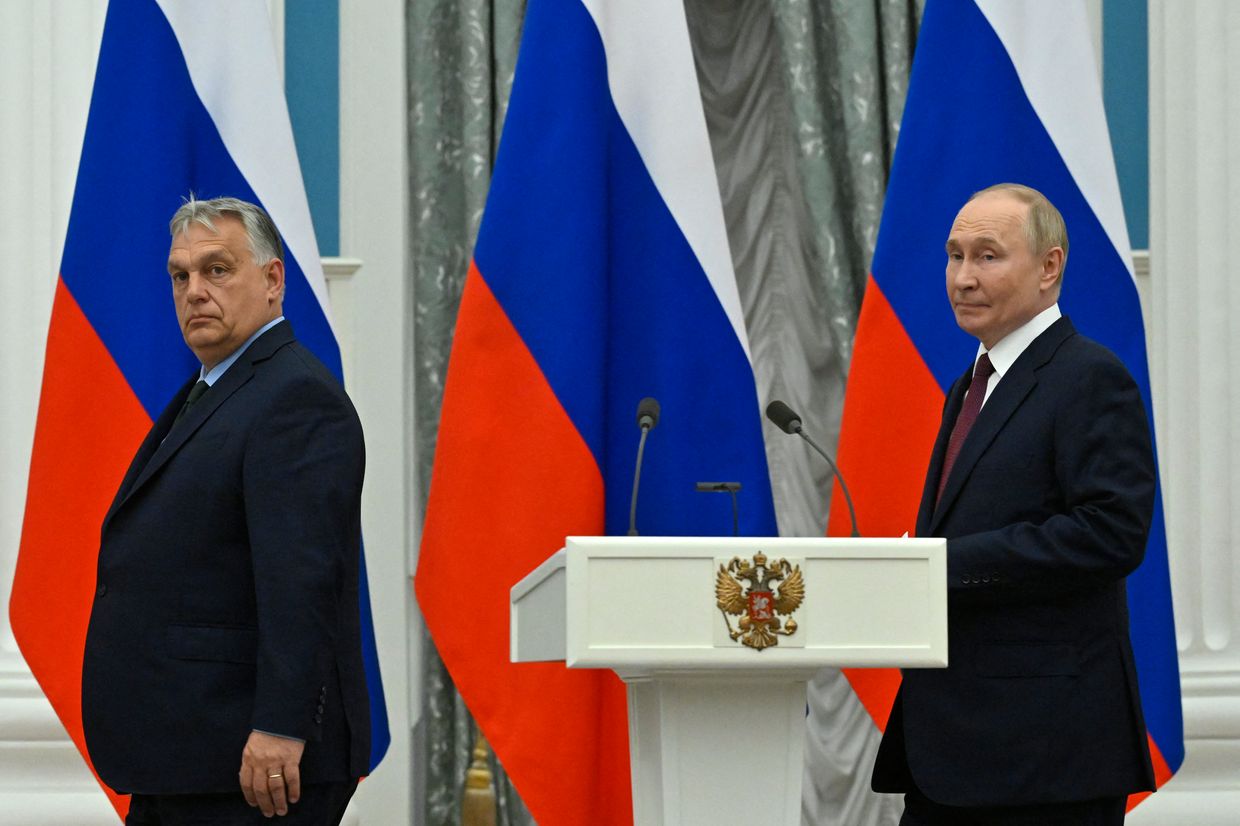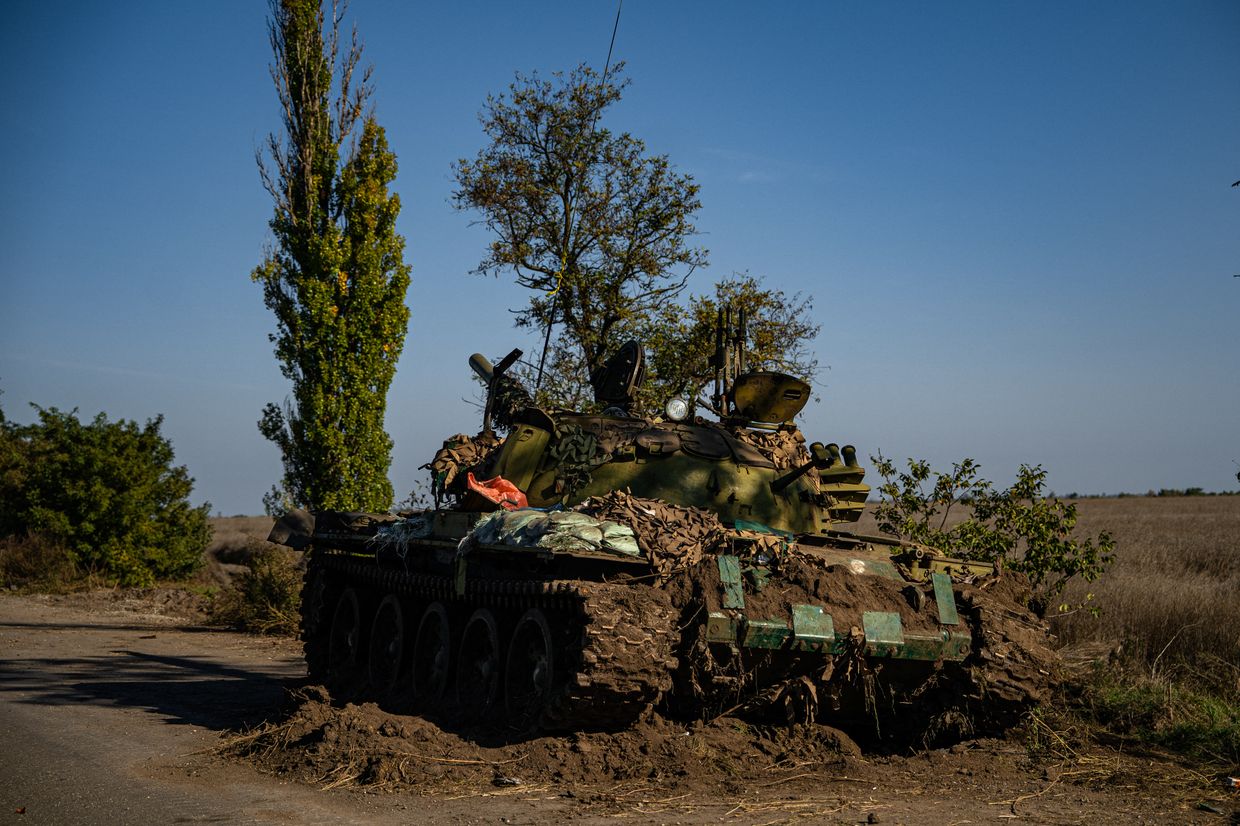Ukraine war latest: Russia launches largest attack of war, targeting Ukrainian regions far from front lines; F-16 pilot killed in attack

Key developments on June 28-29:
- Russia launches largest attack of war, targeting Ukrainian regions far from front lines
- F-16 pilot killed during Russia's overnight massive air attack, Air Force says
- Ukrainian drone strike on Crimea air base destroys 3 Russian helicopters, SBU claims
- 'It's time to move your bill' — Senator says Congress will soon vote on new Russian sanctions after talks with Trump
- Zelensky signs decree to withdraw from Ottawa Convention banning anti-personnel mines
Russia launched its largest aerial attack on Ukraine since the start its full-scale war overnight on June 29, launching 477 drones and 60 missiles towards Ukrainian cities, Ukraine’s Air Force said.
Russian missile and drone attack terrorized Ukraine overnight as air raid alarms sounded across the country, including western regions far from the front lines.
Yuriy Ihnat, a spokesperson for Ukraine's Air Force, confirmed to the Associated Press that the attack had become "the most massive airstrike" since the beginning of Russia's full-scale in February 2022.
Russia's bombardments — a fact of life after three years of full-scale war — have intensified dramatically in May and June, with mass attacks becoming more frequent and more deadly.
Ukraine's Air Force warned late in the evening on June 28 that Russia had launched three Tu-95 bombers from the Olenya military airfield in Murmansk Oblast. The Air Force also warned that multiple groups of Russian drones were heading towards various regions.
Several hours later, the Air Force reported that a Russian MiG-31K — a jet capable of carrying Kinzhal ballistic missiles — took off from Savasleyka airfield in Russia's Nizhny Novgorod Oblast. The Air Force followed this up with warnings that cruise missiles were bound for several regions, including Ternopil, Lviv, and Ivano-Frankivsk oblasts in western Ukraine.
The Operational Command of the Polish Armed Forces said it scrambled fighter jets and activated ground-based air defense units in response to the Russian aerial attacks in western Ukraine.
Explosions and strikes were reported in Mykolaiv, Kremenchuk, Zaporizhzhia, Cherkasy Oblast, Ivano-Frankivsk, and Lviv as waves of attacks came throughout the night. Some regional officials shared preliminary reports of damage and casualties even as air defense continued to operate in the area.
Civilian infrastructure was damaged and at least three people were injured in attacks on Cherkasy Oblast, Governor Ihor Taburets reported.
In Kremenchuk, Poltava Oblast, an undisclosed enterprise was hit, causing a fire, according to Governor Volodymyr Kohut.
A production facility at an unnamed enterprise in Zaporizhzhia was hit during an overnight missile attack, Governor Ivan Fedorov said. No casualties were reported.
After the alarms died down, officials in Lviv Oblast said that Russia attempted to strike critical infrastructure in the region. According to Lviv Mayor Andrii Sadovyi, these efforts were largely unsuccessful.
"Despite the complexity of this overnight combined attack, no one was injured and no civilian buildings were damaged in Lviv," he wrote on Telegram.
Mykolaiv Oblast Governor Vitalii Kim reported that Russia targeted the city overnight with ballistic missiles and Shahed drones, hitting an infrastructure facility. The strike caused a fire but no casualties.
The mass missile and drone attack comes a day after Russian President Vladimir Putin told reporters that Moscow is ready to hold another round of peace talks.
Ukrainian and Russian delegations have now held two direct talks in Istanbul, but the discussions have yielded few results outside of coordinated prisoner swaps.
Moscow refuses to budge on its maximalist ambitions in Ukraine and is unwilling to enter a ceasefire unless Kyiv preemptively agrees to surrender all foreign military aid. Putin on June 20 declared that "all Ukraine is ours" in a bombastic speech at the St. Petersburg Economic Forum.
Russian ballistics and kamikaze drones have targeted Kyiv and other Ukrainian cities with renewed ferocity, killing dozens of civilians and injuring hundreds more. Just this week, a Russian missile struck a passenger train in Dnipro, leaving 21 dead and over 300 wounded.

F-16 pilot killed during Russia's overnight massive air attack, Air Force says
A lieutenant colonel flying a U.S.-made F-16 fighter jet was killed during the overnight aerial strike while on duty, the Air Force said on June 29.
Maksym Ustymenko, born in 1993, was killed after shooting down seven aerial targets, the Air Force said in a statement. The Air Force added that his aircraft was damaged while he was trying to shoot down the last one, losing altitude and crashing.
"Maksym Ustymenko did his best to take the plane away from the settlement, but did not have time to eject," the Air Force said on Telegram, honoring that he died "like a hero."
"The work of Ukrainian pilots is extremely dangerous and risky, both when striking enemy ground targets and repelling air attacks," the Air Force added, saying that the F-16 pilots destroy dozens of Shahed-type drones.
In his evening address, President Volodymyr Zelensky posthumously awarded Ustymenko with the Hero of Ukraine award.
"Today, he was killed defending our skies and our people from yet another massive Russian attack... It is painful to lose people like him," Zelensky said in offering condolence to loved ones.
Russia has intensified its aerial campaign on Kyiv and other cities over the past month. Zelensky said that Russia has launched over 2,700, or roughly 9.5%, of the total number of Shahed-type drones deployed during the entire full-scale war in June alone.
Though well protected with Western air defense systems compared to other cities, Kyiv has also faced a number of deadly attacks in June, with the June 17 missile and drone strike on Kyiv killing 30.
The Air Force said that Ukraine had to use "all available means" to repel the Russian aerial attack overnight on June 29, including elite F-16 jets.
Ukraine received its first batch of F-16 jets in the summer of 2024, but it has not revealed many details about how and where they are used in operations since they are a high-priority target for Moscow. Their pilots have received months of training abroad.
Ukrainian drone strike on Crimea air base destroys 3 Russian helicopters, SBU claims
Drones operated by the Security Service of Ukraine (SBU) struck the Kirovske military airfield in occupied Crimea overnight on June 28, the SBU told the Kyiv Independent.
The attack destroyed Mi-8, Mi-26 and Mi-28 attack helicopters, and a Pantsyr-S1 self-propelled anti-aircraft missile and gun system, the SBU claimed.
According to the SBU, Ukraine targeted Russian aviation, air defense systems, as well as ammunition, reconnaissance and attack drones storage facilities.
Secondary explosions were heard at the airfield during the night.
The Kyiv Independent could not verify these claims.
As Russia intensifies aerial attacks on Ukraine and the civilian death toll climbs, Ukraine has stepped up its drone attacks on Russian territory too.
Earlier on June 27, Ukrainian drones struck four Su-34 fighter jets at the Marinovka airfield in Russia's Volgograd Oblast, according to the military.
Preliminary reports indicate that two Russian fighter jets were destroyed in the June 27 attack, and the other two were damaged. Russia uses the aircraft to bomb Ukraine.
'It's time to move your bill' — Senator says Congress will soon vote on new Russian sanctions after talks with Trump
After holding a discussion with U.S. President Donald Trump, Senator Lindsey Graham said on June 29 that the U.S. president was ready for the Senate to vote on a bill to impose new sanctions on Russia.
Voting on the bill is expected to begin following the end of the July congressional break, Graham said.
"For the first time yesterday the president told me... he says, 'it's time to move your bill'," Graham said in an interview with ABC News, stressing that it would be Trump's purview as to whether the bill would ultimately be signed into law.
When asked if Graham expected Trump to sign the bill, the senator responded: "Yes, I think we're in good shape... But he has a waiver. It's up to him how to impose it."
Graham said he held the talk with Trump during a round of golf on June 28. No specific timeline was provided as to when the bill can be expected to be moved, although Congress is set to reconvene on July 9.
Signed by 84 co-sponsors, Senators Lindsey Graham (R-S.C.) and Richard Blumenthal (D-Conn.) have been working on a revised version of their bill that would impose secondary sanctions on Russian trading partners, while shielding Ukraine’s allies from penalties and making technical adjustments.
"So what does this bill do? If you're buying products from Russia and you're not helping Ukraine, then there's a 500 percent tariff on your products coming into the United States. India and China buy 70 percent of Putin's oil. They keep his war machine going," Graham explained.
Despite pressure, Trump has thus far refused to impose additional sanction against on his own accord. Amid discussion around the Senate bill, Trump has reportedly asked Graham to to soften his proposed sanctions, having previously postponed a vote on the bipartisan measure.
Amid the slow process of moving the proposed bill, Graham described the move as a "big breakthrough."
Ukraine has repeatedly urged the United States to impose additional sanctions on Russia as Moscow continues increase the frequency and magnitude of its attacks on Ukrainian cities.
Graham's comments come just hours after Hungarian Foreign Minister Peter Szijjarto claimed that Washington lifted sanctions that hindered the expansion of the Paks Nuclear Power Plant, where Russia's state-owned energy company Rosatom is to build two new reactors.
Zelensky signs decree to withdraw from Ottawa Convention banning anti-personnel mines
Zelensky signed a decree to withdraw from the Ottawa Convention banning anti-personnel mines, a step that follows the Baltic nations and Poland's move to boost their defense as the war rages on in Ukraine.
The 1997 treaty, joined by over 160 countries, bans the use, production, stockpiling, and transfer of anti-personnel landmines in efforts to protect civilians from the scattered explosives that could still injure them long after the conflict is over.
"Russia has never been a party to this convention and uses anti-personnel mines extremely cynically," Zelensky said in justifying the decision. "And not only now, in the war against Ukraine. This is the signature style of Russian killers — to destroy life by all methods at their disposal.
Earlier in March, the Baltic states and Poland announced their intention to withdraw from the Ottawa Convention, a significant shift in defense policy that shows how countries near Ukraine are preparing for a potential war in Europe.
Anti-personnel mines are scattered across the battlefield in Ukraine, with soldiers and civilians often losing their feet or limbs due to detonations. Territories liberated by Ukraine since 2022 have been heavily covered with mines, making it extremely difficult and dangerous to clear them. Russia has used more than a dozen variants of anti-personnel mines since it launched a full-scale invasion of Ukraine in 2022, according to Human Rights Watch's June report.
In a surprise move that angered Moscow, the Biden administration in 2024 approved the provision of anti-personnel mines to Ukraine. Then Defense Secretary Lloyd Austin said it was to help Ukraine stall the Russian advances in the east as the front-line situation deteriorated.
"This is a step that the reality of war has long demanded," lawmaker Roman Kostenko, secretary of the parliament's defense committee, said in the Facebook post announcing a significant move forward in withdrawing from the major mine treaty.
Now that Zelensky signed the decree enacting the decision of the National Security and Defense Council of Ukraine, it will land on the parliament's table, Kostenko said. The dates when the decision will take effect are still unclear.
















